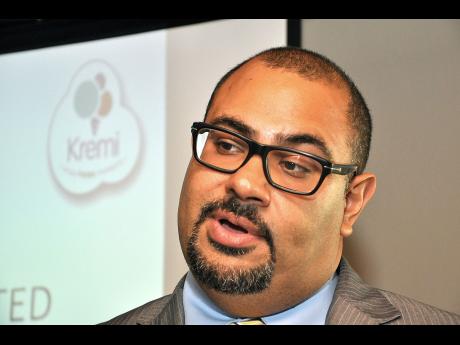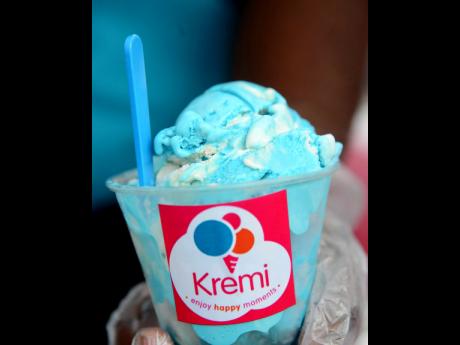Caribbean Cream investing $200m in plant upgrade
Caribbean Cream Limited, which trades as Kremi ice cream, plans to invest $200 million to improve operations and dress up expanded space in its Kingston plant.
The company announced the investment in its operations, even while categorising the newest new player, Lasco, as a separate and non-competing entry in the ice-cream market. Lasco Manufacturing is now producing a powdered ice cream distributed through grocery retailers, a market segment in which Kremi says it has no plans to compete.
The ice cream maker announced plans to install a wastewater plant by next year. This will treat and pump waste water efficiently in order to decrease operational costs, said Kremi Chief Executive Officer Christopher Clarke. Second, the company plans to complete the expansion of its production space, which it is increasing by 50 per cent.
"The wastewater project is budgeted at $30 million. Our fitting of the factory, which includes many more things besides flooring, is budgeted at $170 million," Clarke told Gleaner Business following the company's annual general meeting on Tuesday.
"Besides flooring, we will include sanitary wall covering, insulation, AC units for production area, and other things."
The planned project expenditures amount to four times the $47 million capex recorded by Kremi for its last financial year ending February 2016.
The plant improvement will allow Kremi to lay the groundwork for possible HACCP certification. This would allow entry into the United States for its products, but Clarke said the company currently does not have an export plan.
Lasco entered the market in January with its product dubbed Ice Dream, which is sold from dry goods shelves rather than freezers. Lasco's target is persons who want to make ice cream for their families or for resale within communities.
DOING WELL
"The company [Kremi] is doing well, and we believe that the products are not competing products, so we do not see any problem It's a different product," said Clarke, who also noted that Kremi doesn't plan to add powdered ice cream to its product line.
Kremi's first-quarter ending May 2016 results however continued to show strong earning at 81 per cent to $71.2 million net profit. Kremi also expects to increase its staff complement slightly from 130 to 140 by the close of the financial year ending March 2017.
Since listing on the Jamaica Stock Exchange (JSE) the company invested in equipment, blast freezers and rack shelves in order to accommodate its increased production.
"It is now time to build out the space. The production floor has increased by 50 per cent to accommodate future growth. Good manufacturing practices and HACCP were taken into account when designing this facility to ensure quality and efficiency are maximised," Clarke told shareholders at the AGM. They in turn mostly congratulated Clarke on Kremi's stellar performance in regard to its capital gains on the Jamaica Stock Exchange.
"In addition to our capitalisation, we ask that some higher dividends could be paid," shareholder Orette Staple requested . Most shareholders, however, sought clarity on expense line items.
Kremi listed on the junior stock market in May 2013, becoming the first ice-cream maker to go public. Its performance remains one of the best on the market for 2016 with its shares climbing from $1.75 to over $10.75 over 52 weeks. It now trades just above $9.
The company is a manufacturer and distributor of bulk ice cream products. It produces 20 flavours of Kremi ice cream in three-gallon, 1.5-gallon and quart sizes, as well as three flavours of ice cream cake novelties. It also distributes the Flavorite brand of frozen novelties from Trinidad.
Caribbean Cream currently owns and operates three depots located between Montego Bay and Kingston, and its products are distributed through franchise operators in Kingston.
The ice cream maker reportedly commands a 50 per cent share of the bulk distribution market. Its retail products are distributed by Wisynco Group.


